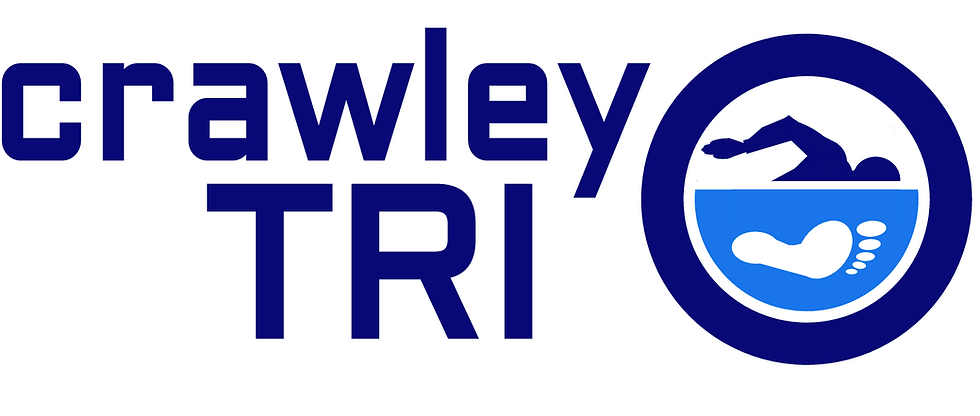SWIM FEARS
- Crawley Tri Coaches
- Nov 12, 2016
- 3 min read
Most perfectly fit and rational people will avoid signing up for a triathlon based on one thing: the swim. If you’ve avoided signing up for a triathlon for just that reason (or you have signed up, but you’re facing the swim with an ever-increasing dread), here's solid tips for facing your fears:
The fear: You really can’t swim
Swim lessons are your best friend, they're not just for children. Golden rule, don't leave swimming out of your agenda for more than 5 days, even if its just 20 min post-workout, to keep the feel of the water. There are adult classes available in most leisure centres, and our local coaches can help you in this arena. If you feel your swim can be improved and to focus training on this area in particular, check out master swim clubs near you. Similar to triathlon, these are groups of local adult swimmers who train for local and regional competitions. Training for what you want i the only way to succeed.
The fear: You can swim… but… front crawl?

Many would-be triathletes simply hate the idea of swimming front crawl for more than one length. Maybe it’s the idea of putting their head under water or their feet sink or it’s just plain exhausting!
If you know how to swim, but your front crawl isn’t great, it’s time to employ a triathlon-specific or efficiency-based swim coach. Learning how to swim front crawl efficiently means the difference between an exhausting (and potentially frightening) slog through the water and finishing the swim ready to cycle and run. A triathlon-specific swim coach can offer tips to keep your legs fresh, drills to help with open water sighting, and teach more efficient breathing techniques.
Programs are available throughout the country from Art of Swimming and Swim for Tri amongst others.
The fear: Panic
If you’ve learned to swim, feel comfortable with technique and front crawl efficiency, but worry about panic on race day, you’re not alone. Even some of the most confident swimmers feel a sense of panic when faced with a start gun, a lengthy swim, and a mass swim start. While there is no way to escape this completely, there are a few things that can help.
Remember that others feel the same way. Knowing that you’re not the only one feeling stressed goes a long way. And in most races, there are plenty of others who are also first-timers!
Practice the start. Even if it’s just in your swim lane during a training session, practice going out hard, getting your breathing rate and heart rate high, then slowing into a regular, steady pace. Knowing that you’re able to calm yourself after a high-adrenaline start is helpful.
If you have the opportunity, try a swim race prior to your triathlon. Getting used to the swim before having to worry about the rest will give you valuable experience.
The fear: Open Water
Open water is a completely different feeling than swimming in the safety of your local pool. Again, the key is practice. If you can train or even race in open water prior to event day, DO. Get used to not following the black line at the bottom, learn how your goggles work when the water is not chlorinated to crystal-clear, and practice sighting, not just on buoys, but on stationary objects in the distance. Most importantly, practice swimming with a wet suit





Comments